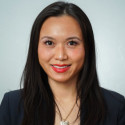SCVS usually kicks off the year of conferences for me. It’s always a nice one to ease into because it tends to be smaller and trainee friendly. The venue is typically an attraction for a late winter getaway. Last year, the conference was held in the chaos of Ultra Music Festival in Miami, but still with excellent beach weather. This year, we descended on Scottsdale, Arizona, a mere two-hour drive from the mystical red rocks of Sedona.
The strategic yearly timing of SCVS serves my purposes well, wedged right in that gray space between winter and spring when a several-day reprieve in the desert from Queens seemed the only thing that could maintain my sanity. Arizona did not disappoint. The broad, languid highways and polite chatter amongst strangers contrasted with the usual shoulder-clenching anxiety and sharp elbows of New York City. It brought me back to my fellowship years in Minneapolis where I enjoyed my time, but still yearned for the lack of “otherness” in someone’s eyes when I was seen in the East Coast.
By the time I moved to New York, the pandemic was past its zenith, but the city was still in a sort of eerie cryogenic sleep. I didn’t know what I thought would happen, but the city never truly came back. If we’re honest, the world never truly came back. It is now four years later, and yet we are still reeling from its effects of isolation and entropy.
On the one hand, we have stopped believing in infrastructure. The pandemic showed us that the efficient infrastructure of society that we had all been bustling to maintain was, in fact, not entirely necessary. We did “mediocre” for a while to make do, and in its prolonged acceptance, it really stuck. On the other hand, many people experienced a decrease in a variety of sensory stimulation, which in its whiplash of clarity, helped reveal the willful negligence of our collective mental health in the white-knuckled pursuit of material success.
I will be the first to fully admit that surgery still brings to mind the old boys’ club with its preservation of a patriarchal hierarchy, but this year’s conference showed signs that we are making an effort to evolve with our times. This year’s program included two presentations on generative AI and its ability to provide accurate disease process information, one a multi-institutional study and one from NYU. This only skims the surface of what will be a long journey integrating machine consciousness into our profession, though it does begin to highlight that whatever your opinion, the future is here and we must prepare.
Although seemingly directly opposed, other sessions dealt with the psychological, legal, and professional fallout of complications, something that was sorely missing from training when I was a resident. The trainees I attended with were particularly drawn, which to me demonstrates our increased awareness and normalization of a human psyche vulnerable to trauma. Crisis management is no longer taboo, but openly discussed in a nonpunitive and constructive fashion. I suppose we’ve all had enough; the physician suicide ideation rate is double that of the general public, according to the Medscape Physician Suicide Report in 2023, with younger physicians being disproportionately affected.
There is no denying that we are rapidly entering times to grapple with definitions of consciousness, life, autonomy, privacy, and humanity. We will undergo the murky work of figuring out where we fit into health care optimally as human beings and where we can appropriately offset less compassionate duties to machines. We will take on the responsibility of training these machines how to perform in a clinically appropriate fashion. Our role is changing, and in this world of constant technological evolution, we must pivot to meet the needs of burned out physicians and their exhausted patients.
We are facing a precipice now with the opportunity to turn the broken health care system around. With AI and introspection, we as physicians may be able to take back our profession into the hands of those who provide it. After all, I have never been able to break scrub in the middle of a case and place the instruments in an administrator’s hands, but I’m sure AI will be keeping books sooner than it performs a carotid endarterectomy independently.
If SCVS is any indication, this is going to be quite a year. I encourage us all to keep an open mind and stay involved with these advancements. We have a responsibility as entities of human consciousness to responsibly feed machines with accurate medical knowledge for the prevention of harmful misinformation. Ultimately, most surgeons would agree that only we should be making these decisions with our patients, but our knowledge should be democratized in its most basic form.
Was SCVS relaxing? Yes, but also exciting. The vascular surgery community is buzzing with what’s to come. I can’t wait for VAM.
Dr. Jing Li is a vascular surgeon at NewYork-Presbyterian Queens.
Image by DrAfter123 / GettyImages






